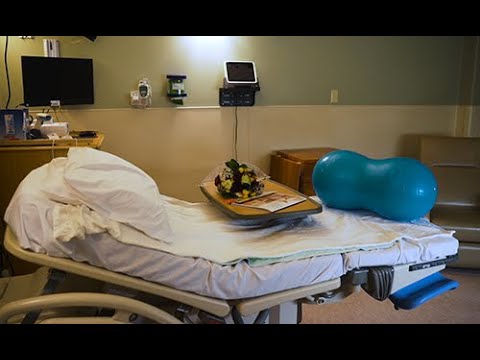Why Choose Us for Your Delivery
When it comes to your child’s birth, you want an experienced team by your side and a place where you feel comfortable. Our goal is to make your experience as joyful as possible and provide a safe, supportive environment. Our private birthing suites are equipped with the latest technology and designed for your comfort.
We support your birth preferences and honor your birth plan — we always put moms' and babies' health first. You choose who delivers your baby — an obstetrician (OB/GYN) or a midwife — and who's there with you, including a doula (offers support during labor). You choose whether you have pain medicine, a natural birth, or a cesarean section (C-section). We believe your labor and delivery should reflect what is important to you.
Our Locations
Our family-friendly locations make you feel at home. You can be confident you have an experienced team by your side, with access to women’s health and pediatric experts if you need them.
Beginnings Maternity Center at Reading Hospital
Beginnings Maternity Center is in the R-Building on the West Reading campus of Reading Hospital. The Fifth Avenue Garage gives you the easiest and closest access. Park in the spaces reserved for Beginnings Maternity patients and enter the building through the revolving door into the Fifth Avenue lobby. The reception staff will help direct you.

Video: Welcome to Reading Hospital Beginnings Maternity Center
Learn more about Reading Hospital's maternity services. Watch our video walkthrough or take a tour in person (requires appointment).
Highlights
- Private rooms with spa-like bathrooms and plenty of space for visitors.
- Family-friendly extras, including a comfortable sleeping couch for birthing partners, Wi-Fi, flatscreen TVs, refrigerators, room service dining, and valet parking.
- Welcoming environment, with soft lighting and soothing décor to help families feel at home.
Women’s Health Pavilion at Phoenixville Hospital

Video: Phoenixville Hospital Maternity Services
Learn more about Phoenixville Hospital's Maternity services. Take our virtual tour or call 610-983-1250.
Highlights
- Private rooms are equipped with advanced technology, ample space for visitors, and comfortable sleeping sofas for your support person.
- Free Wi-Fi with no password needed.
- Outlets to charge your devices. Phone chargers are available for use in the lobby and the cafeteria.
- A cafeteria, from which patients can order room service, and The Café, which offers coffee and grab-and-go items.
Pain Management During Labor
Pain is one of the biggest fears of delivery. It is important to remember that the pain of labor is different from other pain you may have experienced. Every delivery is unique, and pain tolerance is different for everyone. Labor pain has a purpose; it helps the birth of your baby. Your providers will help you know what is normal and what needs to be addressed.
You can prepare for how to manage labor pain. The pain of childbirth is not constant. It comes and goes with the contractions. We encourage you to try to rest in between and prepare for the next contraction wave.
We make sure you understand all your pain management options so that you can make an informed decision, including:
- Natural birth. Rather than using pain medicine, you can choose techniques such as aromatherapy, visualization or meditation, massage, movement, and positioning, breathing exercises, or hot or cold therapy.
- Injected pain medicine. There are a variety of pain medications, including systemic analgesics (reduces pain but cause sleepiness), local anesthesia (numbs a small area), or regional anesthesia (numbs your lower body) — such as an epidural block or a spinal block. General anesthesia (puts you to sleep) is only used in an emergency.
Bleeding and Blood Loss
Bleeding during labor and delivery is expected. Mother nature is very smart and increases your blood volume during pregnancy. However, anemia is a real threat to this blood loss. While we reserve using blood and blood products to extraordinary situations these may be considered during or after birth. We respect all beliefs on receiving blood products. Your healthcare team will collaborate with you to address your needs and wishes.
Your healthcare team is there to make sure you understand what is happening and will inform you of your options, explain benefits and side effects of different treatments, and help you have the best birth experience possible.
Prepared for the Unexpected
Most births go smoothly, but we are well-prepared to provide immediate, expert care for moms and babies, including:
- High-risk obstetricians. Our maternal-fetal experts have advanced training to care for high-risk pregnancies. It is comforting to know they are here if you need them.
- Emergency cesarean section. If you need a C-section, we have an experienced team and advanced equipment ready at a moment’s notice.
- On-site NICU and neonatal intensive care. If your baby needs extra attention at Reading Hospital, your newborn can get immediate care in our technologically advanced NICU. Our neonatologists and NICU nurses are ready to respond to your baby’s needs right away. We also have a Level II Special Care Nursery at Phoenixville Hospital.




